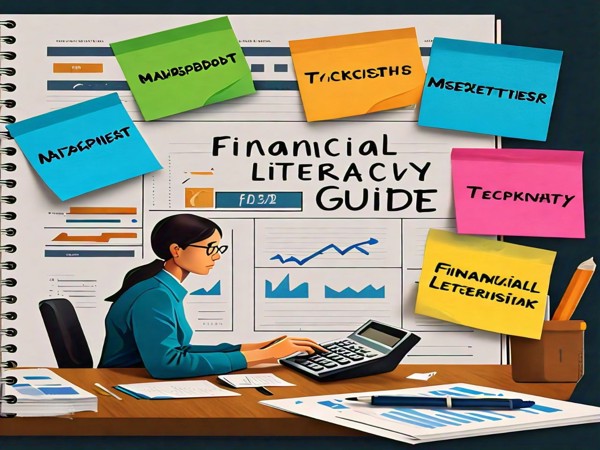Are you ready to take control of your finances and secure a brighter financial future? Budgeting for financial literacy is the first step towards achieving your money goals. In this blog, we'll explore seven powerful techniques that'll help you master your budget and boost your financial know-how.
Ready to transform your financial life? Let's dive in and discover how you can become a budgeting pro!
1. Track Every Penny
The foundation of effective budgeting for financial literacy is knowing where your money goes. Start by:
- Using a budgeting app or spreadsheet to record all income and expenses
- Categorizing your spending (e.g., housing, food, transportation)
- Reviewing your spending patterns at the end of each month
Remember: You can't manage what you don't measure.
2. Implement the 50/30/20 Rule
This simple budgeting technique helps you allocate your income wisely:
- 50% for needs (rent, utilities, groceries)
- 30% for wants (entertainment, dining out)
- 20% for savings and debt repayment
Adjusting these percentages based on your personal situation can help you achieve a balanced budget.
3. Create SMART Financial Goals
Setting Specific, Measurable, Achievable, Relevant, and Time-bound (SMART) goals is crucial for financial success. For example:
- Save $5,000 for an emergency fund in 12 months
- Pay off $10,000 in credit card debt within 18 months
- Increase retirement contributions by 2% in the next 6 months
Write down your goals and review them regularly to stay motivated.
4. Embrace the Envelope System
This old-school technique can be a game-changer for controlling discretionary spending:
1. Allocate cash to envelopes labeled with different spending categories
2. Once an envelope is empty, stop spending in that category
3. Adjust allocations as needed based on your priorities
While you can use physical envelopes, many budgeting apps offer digital versions of this system.
5. Master the Art of Meal Planning
Food costs can quickly derail your budget. Here's how meal planning can help:
- Plan your meals for the week ahead
- Create a grocery list based on your meal plan
- Shop with a list and stick to it
- Prep meals in advance to avoid impulsive takeout orders
By mastering meal planning, you'll save money and reduce food waste.
6. Automate Your Savings
Make saving a habit by putting it on autopilot:
- Set up automatic transfers to your savings account on payday
- Use apps that round up purchases and save the difference
- Participate in your employer's 401(k) plan with automatic contributions
Automating your savings ensures you pay yourself first.
7. Conduct Regular Financial Check-ups
Stay on top of your financial health with regular reviews:
- Monthly: Review your budget and adjust as needed
- Quarterly: Check your progress on financial goals
- Annually: Review your insurance coverage and investment portfolio
These check-ups help you stay accountable and make necessary adjustments to your financial plan.
Budgeting for financial literacy isn't just about restricting your spending – it's about making informed decisions that align with your values and goals. By implementing these seven techniques, you'll be well on your way to mastering your budget and improving your overall financial health.
For more in-depth information on budgeting techniques, check out this comprehensive guide from [The Balance](https://www.thebalancemoney.com/budgeting-101-1289589).
Remember, becoming financially literate is a journey, not a destination. Be patient with yourself and celebrate small wins along the way. With consistency and dedication, you'll develop strong budgeting habits that'll serve you well for years to come.
Ready to take your budgeting skills to the next level? Start by implementing one of these techniques today. Your future self will thank you for taking this important step towards financial freedom!

.jpg)







